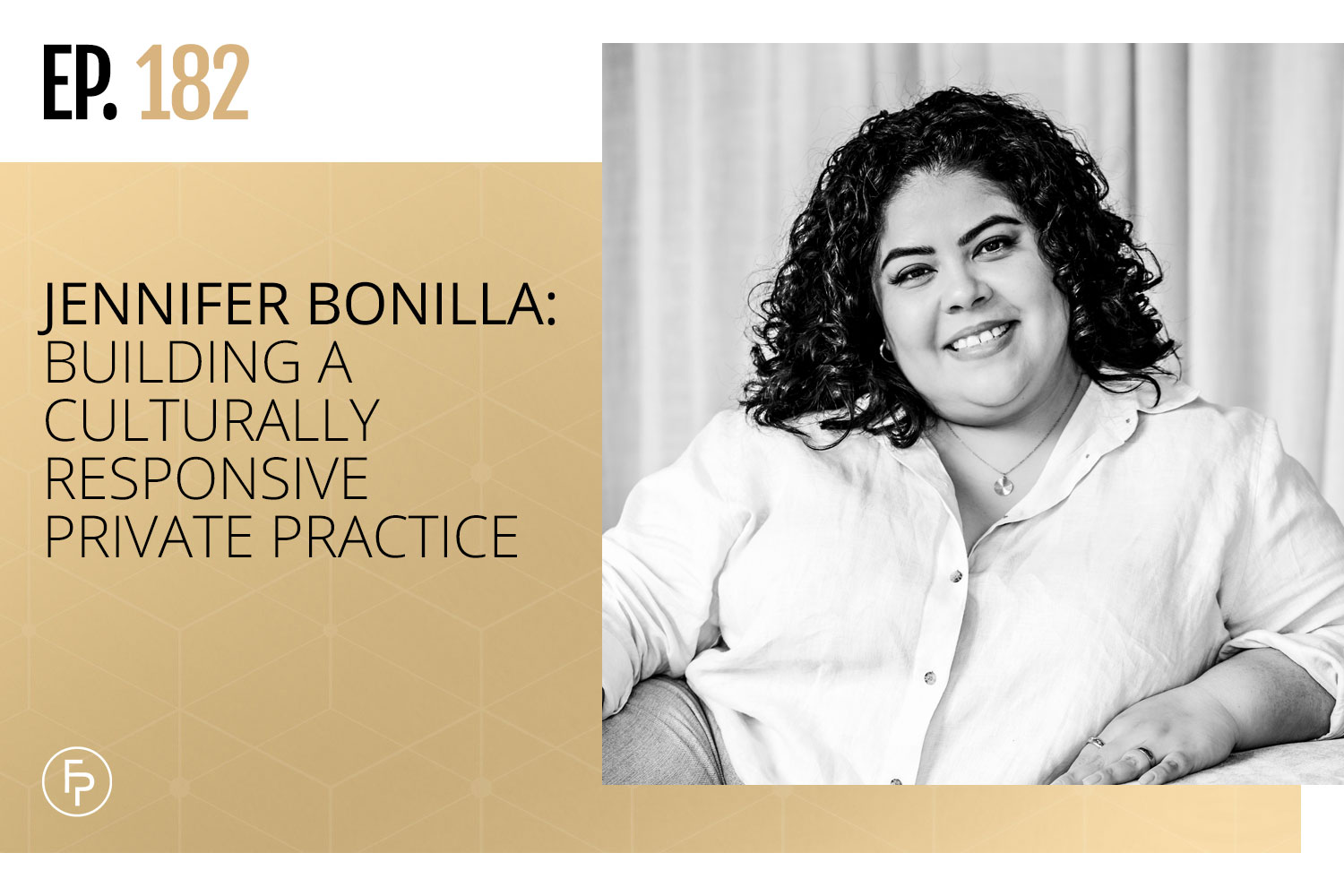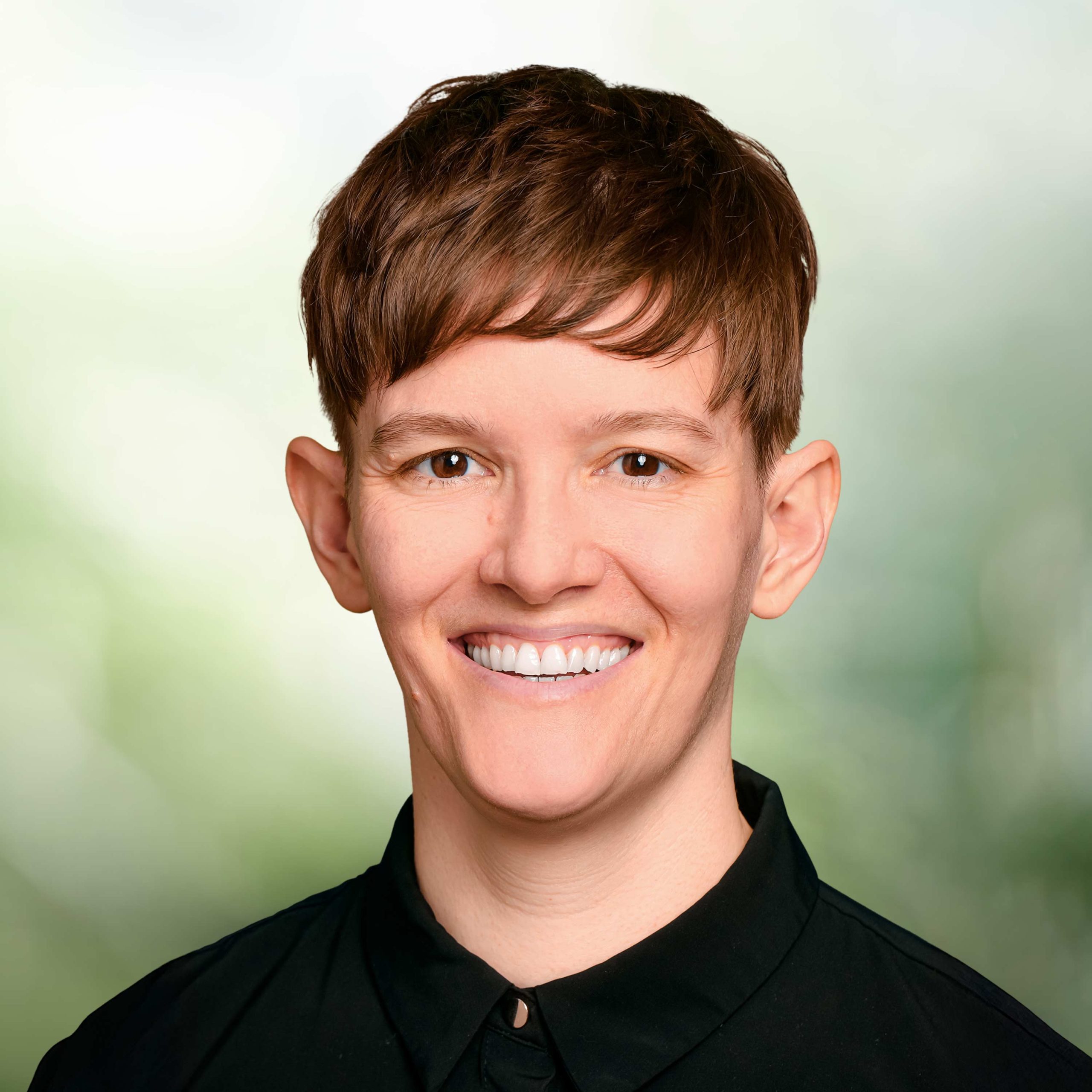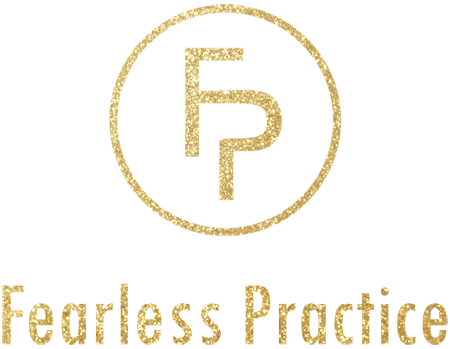JENNIFER BONILLA: BUILDING A CULTURALLY RESPONSIVE PRIVATE PRACTICE | EP 182

Have you noticed gaps in your community where there are needs that require attention? Are you hearing the same or similar pains over and over in the lives of the people around you? This is what happened to Jennifer, and she took the initiative to provide services to those whom she saw needed them the most.
In this episode, Jennifer and I discuss how she based her new, growing Canadian private practice on the values of cultural awareness, belonging, and identity, and how she is making the transition to solo practice financially stable.
We also talk about blogs, working with AI, instilling balance, and why adaptability is an important gift that you should give yourself when working in this mental health field. There are many gems to share, so welcome our conversation!
Jane is an all-in-one health and wellness practice management platform designed to be helpful to you, no matter how or where you practice. Available online and on any device, Jane offers branded online booking, beautiful scheduling, insurance management, customizable charting, online intake forms, patient reminders, integrated payment processing, online appointments (telehealth) and more! Use the code FEARLESS2MO at signup to receive your first month completely free!
MEET JENNIFER
Jennifer Bonilla is a Registered Psychotherapist and the founder of Therapy Across Seasons, serving adults and families online across Ontario. She specializes in helping clients understand how attachment and family dynamics shape their confidence, boundaries, and relationships. Guided by compassion and cultural awareness, Jennifer supports people in moving through life’s seasons with greater clarity, connection, and resilience.

Learn more about Jennifer on her practice website, Instagram, and LinkedIn profiles.
In This Episode
- Why Jennifer decided to become a therapist
- Starting a private practice
- Centering Culture in Private Practice
- Financial prep to curb fear
- Marketing the practice
- Jennifer’s advice for listeners
Why Jennifer decided to become a therapist
Jennifer started in the mental health field as a child and youth worker.
‘Working with youth and growing up in the city of Toronto, you are exposed to different cultures and languages and values, and I think growing up in such a multicultural city, one of the things that stood out to me was being able to [explore] how I could support people.’ – Jennifer Bonilla
While Jennifer enjoyed working with youth and children in Toronto, she saw gaps in care.
‘I realized that I wanted to go further, but I needed the skills and the tools, which in this case would have been therapy … So, that was what pushed me to want to do therapy and sit with people in the pain and confusion.’ – Jennifer Bonilla
Starting a private practice
Jennifer appreciated the experience that she had working in other group practices, but she knew that she wanted to start her own practice because she wanted to lay her own foundation.
‘There are some limitations sometimes when we do work under contract for other private practices, right. They have a goal, they have a vision, which is great, but sometimes you might want to go in a direction that’s a little bit different, and I think for me, I really wanted the values of culture and curiosity, and key pieces that I saw when I was working with clients.’ – Jennifer Bonilla
Apart from wanting to ground her practice on a specific set of goals and values, Jennifer also wanted to live a professional life that had more flexibility to it. She wanted to create her own schedule, rather than follow one from someone or something else.
Centering Culture in Private Practice
‘A lot of the clients that I work with within the BIPOC community, who either came as immigrants as children or who are first-generation Canadians, a lot of the time we’re talking about anxiety … depression, and burnout. A lot of the time, we come back to cultural expectations.’ – Jennifer Bonilla
Jennifer noticed that many of her clients kept having the same or similar issues around culture, identity, belonging, and self-assurance.
These conversations kept coming up, and Jennifer noticed that at the core of some of her clients’ anxieties were anxieties around cultural identity.
‘We have to be able to acknowledge the importance that sometimes those things play, but also how we honour that … and also figure out where we go with that, right, because some people want to separate it but other people want to honour that while figuring out [their] path, and what serves [them] and what doesn’t.’ – Jennifer Bonilla
Financial prep to curb fear
Jennifer is working in phases. She still has a caseload in the other group private practice, and sees clients on the side in her new, growing private practice.
She’s slowly transitioning out of one and into the other as her income grows to make this change carefully and intentionally, without risking her income and livelihood.
‘Eventually I’ll be able to be 100% [solo] practice and no longer having to rely on the contract work, but at the same time it’s nice to have something to fall back on and not be worried and be driven by fear [about] the income, as opposed to allowing myself to grow the practice without that fear of the finances.’ – Jennifer Bonilla
By taking it slowly, such as building up emergency savings, relying a little on contract work, and slowly transitioning into private practice, Jennifer can keep making her professional choices from a place of intentionality, not fear.
Marketing the practice
Jennifer is going full-tilt on marketing her solo practice. When she has the time – or makes the time – she writes blogs, vlogs, and networks to get her business off the ground.
When it comes to writing blogs, Jennifer does use AI tools to help her with prompts, but is careful to keep her words her own.
‘I don’t get it to write the blog itself … I prompt it to say, “Hey, what are some questions people might ask, what are some questions I might need to consider” … Like a weird podcast, I end up doing it verbally like I’m talking, because it sounds the most like myself. From there, I’ll take the transcript [and write the blog].’ – Jennifer Bonilla
Furthermore, Jennifer is brainstorming about the possibility of hosting workshops from 2026 onwards.
Jennifer’s advice for listeners
Take a seasonal perspective. Remember that things come and go, times change. What is sustainable overall? How can you adapt throughout the times?
‘Wherever you start, it’s going to evolve … We rarely start with the full picture … Have focus, but be flexible enough to pivot when something isn’t working.’ – Jennifer Bonilla
Connect With Me
Resources Mentioned and Useful Links:
Encore: Affordable Ways to Start a Canadian Private Practice in 2025 | EP 181
Learn more about the tools and deals that I love and use for my Canadian private practice
Sign up for my free e-course on How to Start an Online Canadian Private Practice
Jane App (use code FEARLESS2MO for two months free)
Create your website with WordPress!
Learn more about Jennifer on her practice website, Instagram, and LinkedIn profiles
Rate, review, and subscribe to this podcast on Apple Podcasts, Spotify, Amazon, and TuneIn


About Jules Smith
Jules Smith, MEd, RCT, CCC is a registered Counselling Therapist who owns a group private practice in Halifax, Nova Scotia. They are also the owner of Fearless Practice Consulting and hosts the Fearless Practice podcast. Through the Fearless Practice podcast, they provide invaluable insights and practical advice on starting and growing a successful Canadian private practice.
Jules also has written articles for the Canadian Counselling and Psychotherapy association. You can learn more at www.ccpa-accp.ca/blog/.


